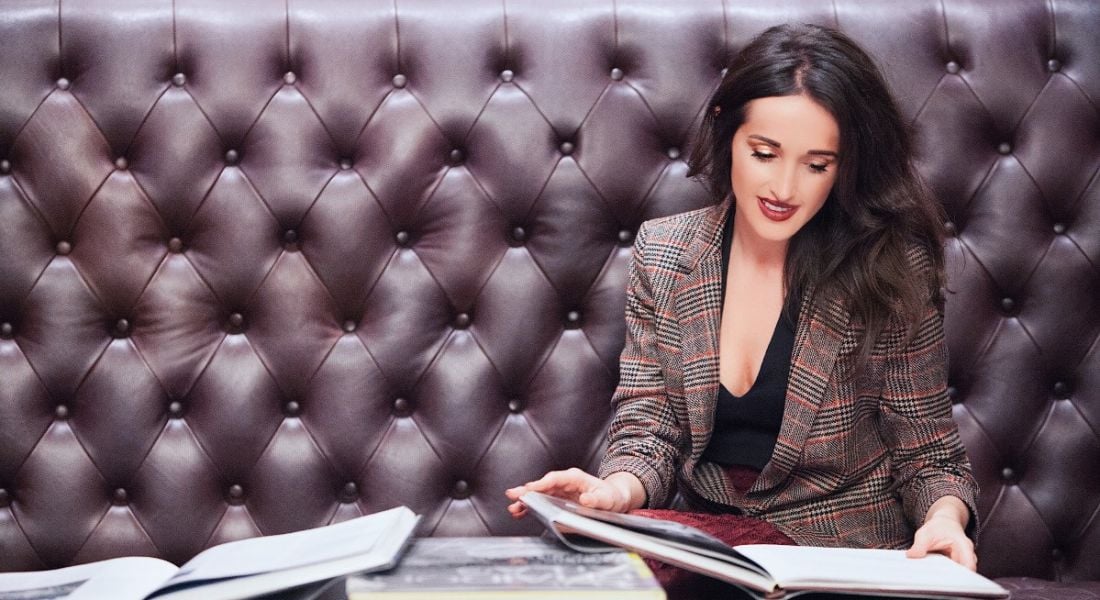Having pivoted from corporate law into digital marketing, Elma Beganovich shares her advice for others hoping to make a big move.
With an Instagram following of more than 700,000 people, Elma Beganovich has found a way to make a living out of social media marketing. Despite starting out her career as an attorney in New York, she now runs a digital marketing agency – Amra & Elma – with her sister.
In her role, she identifies potential partners for the company and develops the terms and scope of collaborations. Beganovich has worked with a number of global brands to date, such as Johnson & Johnson, Procter & Gamble, Uber, Nestlé and Huawei.
Here, she talks about making the decision to move from corporate law into influencer marketing and what she learned along the way.
‘I had no idea what was waiting for me around the corner when social media exploded and digital marketing took on another shape’
– ELMA BEGANOVICH
What does a typical day look like for you?
I think there is no typical day in the life of Elma Beganovich! I have to basically be ready for whatever is thrown my way, for example, reviewing a request for proposal (RFP), reviewing the pricing of the RFP for the scope of work, talking to the press, talking to our accountants or giving our publicist direction and approving work.
What did you study at college?
I studied French and government at Georgetown (BA), then I studied law at University of Miami and, finally, I studied securities and financial regulation at Georgetown Law.
Much of what I studied I never ended up using in real life and, retrospectively, a BA was plenty of schooling for someone whose goal is to build a company. I’ve learned that experience in the real world is extremely important, and we need time to acquire experience and metabolise it, so to speak.
Did you always want to be an influencer?
Growing up, the term had meant something utterly different; there were no digital lifestyle influencers on Instagram.
I knew I wanted to have a level of influence to make a difference in certain areas like conservation, animal rights and other causes. I just had no idea what was waiting for me around the corner when social media exploded and digital marketing took on another shape, away from the traditional paper magazines.
Why did you change careers from corporate law?
I think it’s important for everyone to understand who he or she is at his or her core. I think at the time, when I was 18 and choosing my majors and then at 22 choosing to go to law school, I did not have enough life experience to make those types of decisions.
I didn’t understand what debt was and what I was giving up to go to school – income, experience and real-life knowledge outside of the academic bubble. Once I started working in the legal world and got to know what the inside of a law firm looks and feels like, I quickly realised that was not for me. It is a very authoritative field and old-school, where some things have been done the same way for hundreds of years.
Also, I was told very early on that in order to make progress in a law firm, you have to wait your turn to rise in the ranks. I didn’t believe in authority and following tradition; I wanted to pave my own path, be creative and make my own mark on the world.
I quickly realised that was not the world for me and wanted out. It just came sooner rather than later because my sister, now my business partner, was adamantly tugging at my sleeve in late 2012 to leave that old world and take advantage of this booming and new social media landscape.
What was the most challenging aspect of making this change?
I think the most challenging aspect is in the very beginning where, in a way, you have to completely isolate yourself from your friends and colleagues to make a name for yourself, to build a brand name. It’s a very lonely path when you first start because nobody – yet – believes in you.
Hence, your own inner belief has to be so strong that you are okay with being alone and paving your own path. Your friends, especially if they come from traditional backgrounds like law and accounting, and family will question you, even make fun of you, but it’s important to disregard and keep going. I remember the common question amongst my law school friends was, ‘What, you take photos of yourself and post them on the internet?’
Once you cross certain milestones, like opening the company’s office, appearing in major media or working with a Fortune 500 company, those same individuals will come back and congratulate you. So, just keep moving and learning from each failure and see it as a stepping stone to success.
What have been the most important skills you’ve had to use while making the move between careers?
I think one of the most important skills I have had to use and even to develop is to get creative. As an entrepreneur, when you start – especially having a more traditional education from a school like Georgetown and career in law, where you’ve been conditioned to think and see the world a certain way – you have to almost unlearn much of what you have been taught.
You have limited resources starting out. Hence, it’s important to get creative in order to get past many hurdles and actually thrive, because you see the circumstances differently and opportunity where others don’t.
Thank you to @Nasdaq for this amazing interview where Amra and I join @JillMalandrino on Nasdaq’s #TradeTalks to discuss how start-ups can take advantage of booming social media activity and thrive amidst #COVID19.: https://t.co/2OpIao9N0r #InfluencerMarketing
— Elma Beganovich (@ElmaBeganovich) June 1, 2020
Are there any skills you use from your law background in your current work?
Yes, I did end up using much of my legal background when I was first drafting or now mostly reviewing contracts, whether for employment, for clients or our overhead costs.
It was very useful, especially in the beginning, when clients would send us contracts that I could review without having to use outside counsel each time. It certainly saved us a lot financially and saved us a lot of uncertainty because I understood the important parts of the contract and even when I did not know, I knew when to ask.
What advice would you give to others interested in making a major career change or starting a business?
The biggest piece of advice I would give before making a major career change is to take a year off – a sabbatical, so to speak – and go work as an assistant to the CEO of a company you want to build.
It does not matter that you are overqualified to be an assistant. The point is to learn the ins and outs of the business, such as how to acquire and keep customers, and put yourself in the shoes of the CEO.
Do you have the stomach for the lows and highs? What does it really look like when you reach the top? Is it what you had actually envisioned? Do you understand that while extremely exhilarating and rewarding, it is still a lonely path with countless of hard decisions to make along the way?
I think this way, you will not only learn about what it takes, but also learn about yourself. Sometimes we are too inexperienced to make certain decisions, and sometimes you can learn from other industry leaders so you don’t have to reinvent the wheel and repeat the same mistakes as them.




